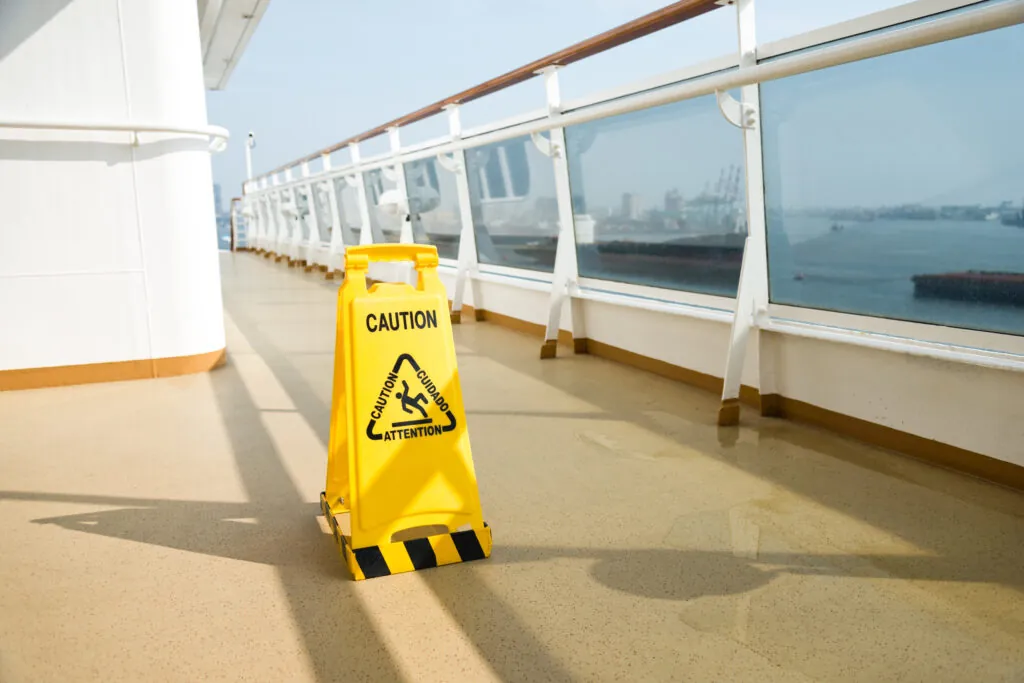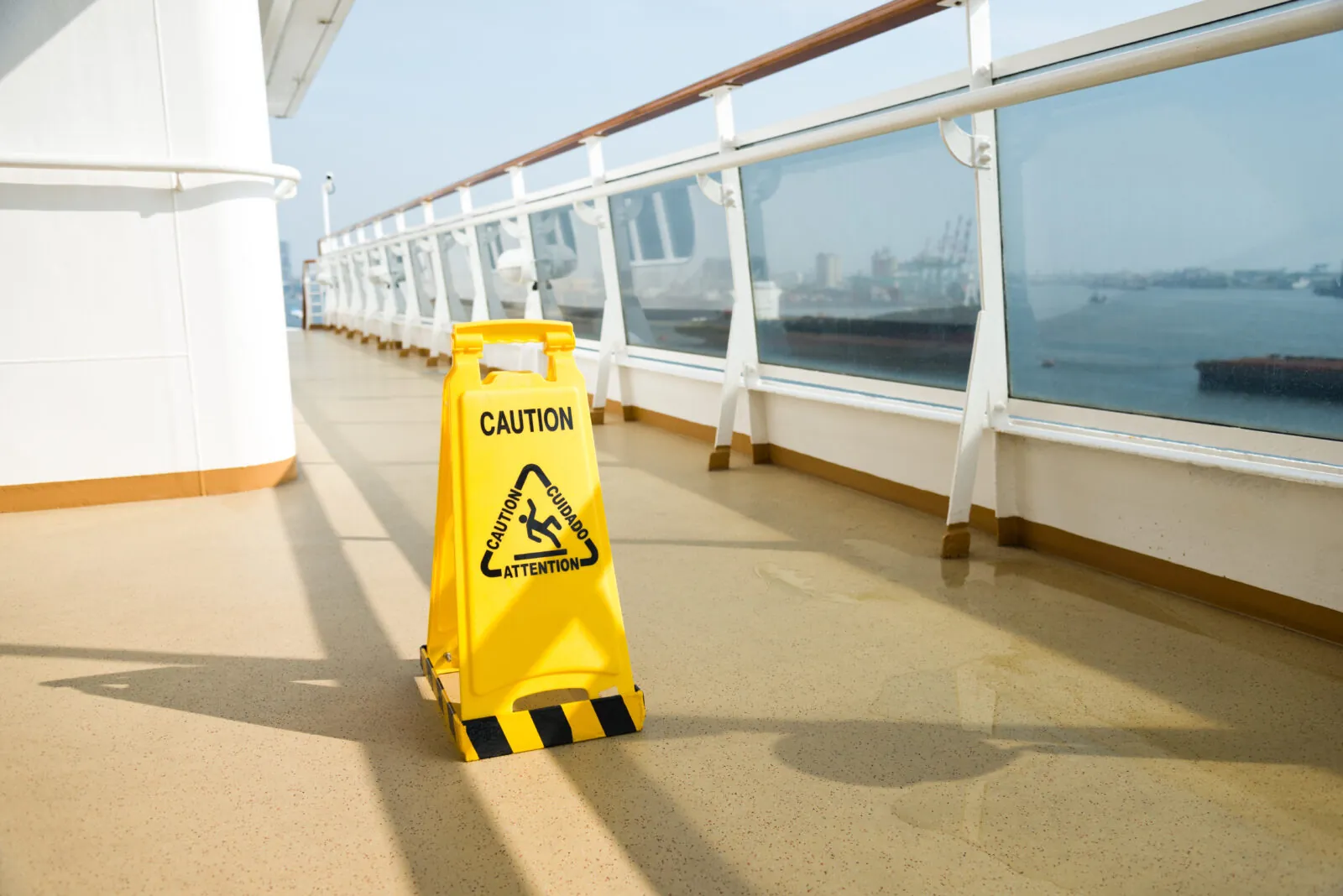Understanding Your Legal Rights After a Cruise Ship Accident
Cruise vacations are meant to be a time of relaxation, fun, and adventure. However, accidents and injuries can occur even on luxurious cruise ships, turning a dream vacation into a stressful ordeal. From slip and fall accidents to food poisoning, medical negligence, or even criminal incidents, the risks are real. When these incidents occur, it’s crucial to understand your legal rights and options for seeking compensation.

Navigating the legal landscape after a cruise ship accident is challenging due to the complexities of maritime law, which governs incidents on navigable waters. Unlike typical personal injury cases on land, cruise ship accidents involve unique regulations, international jurisdictions, and strict time limits for filing claims. In this guide, we will explore everything you need to know about cruise ship accident legal rights, compensation claims, maritime law, and how to proceed with filing a lawsuit. We’ll also discuss the importance of hiring a cruise ship accident lawyer to protect your rights and maximize your compensation.
What Are Your Legal Rights After a Cruise Ship Accident?
Overview of Maritime Law for Cruise Accidents
Maritime law, also known as admiralty law, is a specialized area of law that governs activities and incidents on navigable waters, including oceans, seas, rivers, and lakes. This body of law applies to cruise ship accidents regardless of where the ship is registered or where the passengers reside. It is international in nature and differs significantly from state and federal laws.
Key elements of maritime law include:
- Passenger Rights: Passengers have the right to a safe environment, adequate medical care, and protection from harm while on board.
- Liability and Negligence: Cruise lines must exercise reasonable care to ensure passenger safety. If they fail to do so and an injury occurs, they can be held liable under maritime law.
- Jurisdiction and Venue: Lawsuits related to cruise ship accidents are typically filed in federal court, often in jurisdictions specified in the cruise ticket contract, such as Miami, Florida, or Los Angeles, California.
- Statute of Limitations: Maritime law generally imposes a one-year statute of limitations for filing a lawsuit after a cruise ship accident, although this may vary depending on the cruise line’s contract.
Maritime law is complex and highly specialized. Therefore, it’s essential to seek legal counsel from an attorney experienced in maritime and admiralty law if you’ve been injured on a cruise ship.
Passenger Rights on Cruise Ships
Cruise ship passengers are protected by certain legal rights designed to ensure their safety and well-being while on board. These rights are typically outlined in the cruise line’s passenger contract, which acts as a legally binding agreement between you and the cruise company. Understanding your rights is crucial for protecting yourself legally and financially in the event of an accident.
Your rights as a cruise ship passenger include:
Right to Safety and Security
Cruise lines are required to provide a reasonably safe environment, including well-maintained facilities, proper security measures, and emergency procedures. This includes ensuring that decks are slip-resistant, railings are secure, and emergency exits are clearly marked.
Right to Medical Care
If you become injured or ill on board, you have the right to receive reasonable medical care from the ship’s medical staff. However, the qualifications and responsibilities of onboard healthcare providers can vary, as they are often independent contractors rather than cruise line employees.
Right to Seek Compensation
If your injury is caused by the cruise line’s negligence, you have the right to seek compensation for medical expenses, lost wages, pain and suffering, and other damages. This may involve negotiating a settlement with the cruise line or filing a lawsuit.
Right to Information
You have the right to access incident reports, medical records, and other documentation related to the accident. This information is essential for pursuing a legal claim.
Being aware of these rights before boarding a cruise ship is crucial. In case of an accident, knowing your rights can help you take appropriate action, such as reporting the incident, seeking medical attention, and gathering evidence for a potential claim.
Cruise Line Liability and Negligence
Cruise lines owe their passengers a duty of care, meaning they are legally obligated to ensure a reasonably safe environment and protect passengers from foreseeable harm. When they fail to meet this duty of care, they can be held liable for accidents and injuries that occur as a result. However, proving liability and negligence can be challenging, especially under maritime law.
Examples Of Cruise Line Negligence
- Unsafe Walking Surfaces: Wet, uneven, or poorly maintained walking surfaces, including decks, staircases, and pool areas, can lead to slip and fall accidents.
- Inadequate Security: Insufficient security measures, such as lack of surveillance cameras or untrained security personnel, can result in theft, assault, or other criminal activities on board.
- Poor Maintenance and Defective Equipment: Broken handrails, malfunctioning elevators, or faulty recreational equipment can cause serious injuries.
- Medical Negligence: Inadequate medical care, misdiagnosis, or delayed treatment by onboard healthcare providers can worsen injuries or illnesses.
- Food Poisoning or Illness Outbreaks: Contaminated food or unsanitary conditions can lead to food poisoning, norovirus outbreaks, or other illnesses.
Proving Negligence to Pursue Claim
To pursue a claim against a cruise line, you must prove that the cruise line was negligent and that this negligence directly caused your injury. This involves:
- Duty of Care: Demonstrating that the cruise line owed you a duty of care to provide a safe environment.
- Breach of Duty: Showing that the cruise line breached this duty by failing to maintain safe conditions or by acting negligently.
- Causation: Proving that the breach of duty directly caused your injury.
- Damages: Documenting the extent of your injuries and the financial losses you incurred, such as medical expenses, lost wages, and pain and suffering.
Gathering evidence is critical for proving negligence. This includes taking photos of the accident scene, obtaining witness statements, collecting medical records, and preserving any other relevant documentation.
Legal Challenges in Proving Cruise Line Liability
Proving liability and negligence in cruise ship accident cases is often complicated by several legal challenges:
Jurisdictional Issues
Cruise lines typically specify in their passenger contracts where legal actions must be filed. This is usually in federal courts in specific locations, such as Miami, Florida, or Los Angeles, California. Understanding which jurisdiction applies is crucial for pursuing a lawsuit.
Passenger Contracts and Waivers
Cruise lines often include clauses in their contracts that limit their liability, require arbitration instead of lawsuits, or impose strict time limits for filing claims.
International Maritime Law
Because cruise ships operate in international waters, multiple jurisdictions and international maritime laws may apply. This can complicate the legal process and require specialized legal knowledge.
Given these complexities, it is highly recommended to seek legal assistance from a cruise ship accident lawyer experienced in maritime law. A qualified attorney can help you navigate jurisdictional issues, interpret passenger contracts, and build a strong case to prove the cruise line’s liability.
Frequently Asked Questions (FAQs)
What are my legal rights after a cruise ship accident?
If you are injured on a cruise ship, you have the legal right to seek compensation for your injuries, medical expenses, lost wages, pain and suffering, and other damages resulting from the accident. These rights are governed by maritime law, which applies to incidents that occur on navigable waters. Under maritime law, cruise lines are required to provide a reasonably safe environment for passengers and can be held liable if their negligence or failure to maintain safety standards causes an injury. You also have the right to receive reasonable medical care from the ship’s medical staff and to access records related to your accident and treatment. It is essential to act quickly, as cruise lines often require you to report the incident and file a claim within specific time limits, typically within six months of the accident.
Can I sue a cruise line for an injury?
Yes, you can sue a cruise line for an injury if it was caused by the cruise line’s negligence, unsafe conditions, or inadequate medical care. Common grounds for suing a cruise line include slip and fall accidents, medical negligence by onboard healthcare providers, food poisoning, illness outbreaks, assaults due to inadequate security, or injuries caused by defective equipment. To successfully sue a cruise line, you must prove that the cruise line breached its duty of care and that this breach directly caused your injury. It is important to note that most cruise lines specify in their passenger contracts where lawsuits must be filed, often in federal courts in locations such as Miami, Florida, or Los Angeles, California. Consulting with a cruise ship accident lawyer experienced in maritime law is highly recommended to navigate the legal complexities of suing a cruise line.
How long do I have to file a cruise ship injury lawsuit?
The time limit for filing a cruise ship injury lawsuit, known as the statute of limitations, is typically one year from the date of the accident. However, this time limit can vary depending on the cruise line’s passenger contract. Most cruise lines require you to notify them of your intent to file a claim within six months of the incident and to file the lawsuit within one year. If you miss these deadlines, you may lose your right to pursue compensation, regardless of the severity of your injury. It is crucial to review your passenger contract carefully and consult with a maritime lawyer as soon as possible to ensure you meet all required time limits.
What compensation can I get for a cruise ship injury?
If you are injured on a cruise ship due to the cruise line’s negligence, you may be entitled to several types of compensation, including medical expenses, lost wages, pain and suffering, emotional distress, loss of enjoyment of life, and punitive damages in cases of gross negligence. Medical expenses can include costs for emergency treatment, ongoing medical care, rehabilitation, and future medical needs related to the injury. Lost wages cover any income lost due to the inability to work because of the injury, including future earning potential if the injury results in long-term disability. Pain and suffering compensation accounts for physical pain, emotional distress, and reduced quality of life caused by the injury. In severe cases involving gross negligence, punitive damages may be awarded to punish the cruise line and deter similar behavior in the future. The amount of compensation you can receive depends on the severity of your injury, the impact on your life, and the degree of negligence involved.
Do I need a lawyer for a cruise ship accident claim?
While it is possible to file a cruise ship accident claim on your own, hiring an experienced cruise ship accident lawyer is highly recommended due to the complexities of maritime law, strict time limits, and jurisdictional issues. A specialized lawyer can help you understand your legal rights, gather evidence, negotiate with the cruise line’s insurance provider, and represent you in court if necessary. They can also navigate the complex rules of maritime law and ensure that your lawsuit is filed in the correct jurisdiction, as specified in your passenger contract. Hiring a lawyer increases your chances of receiving the maximum compensation for your injuries.
Contact The Cruise Injury Law Firm Today
If you or a loved one has been injured on a cruise ship, it’s essential to understand your legal rights and explore your options for compensation. Navigating maritime law, proving negligence, and dealing with jurisdictional issues can be challenging without specialized legal expertise.
Don’t wait—act now to protect your legal rights and secure the compensation you deserve. Contact The Cruise Injury Law Firm to schedule a consultation and start the legal process.






